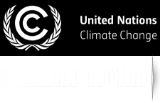A few thoughts about radicality
“You won’t make it”.
My professional life has been punctuated by this statement. Quite often, it has been a trigger to make me want to do it. And quite generally, to get there. Or fail fast and move on.
Setting up the first French independent communication agency specializing in sustainability in France, at a time (2005) when the business world was not even dreaming of social networks yet… that couldn’t work. And yet, it is thanks to pioneers like Patte Blanche that today the French advertising market is one of the most advanced in the treatment of greenwashing.
In a market saturated with events of all kinds, and reluctant to international gatherings, creating the first major European BtoB flagship for innovation, marketing and sustainability, in English and in Paris, was a very bad idea… More than 3000 business leaders from 34 countries, 200 journalists and 97 partners and brands thought otherwise by joining our first edition of Sustainable Brands Paris. And a small personal victory, 18% of attendees came from the USA, which shows that French expertise on this subject is well identified…
We created WDNR in the midst of a lockdown, with a global health crisis and an economy on pause, amidst a saturated advisory environment, to accelerate impact strategies from speed-averse global companies (and let’s face it, generally far away from the needed ambition). In just over 2 years, we have completed over 60 missions with planetary-level challenges for global brands in nearly every industry.
All this to say that when you identify a big problem, and decide to tackle it for good, with the right networks and the right method, nothing is impossible. But you have to be willing to roll up your sleeves and get your hands dirty — and be prepared to drop some beliefs.
Today, we collectively face the greatest challenge humanity has ever faced.
I know it’s quite a cliché, but I don’t have a fairer or more effective way to put it.
We can concretely, in the next 3 to 5 years, turn everything upside down — and in any case the battle will be tough. It can give birth to a livable world, different and certainly diminished (or brought back to reason depending on how we see it), but where our children will be able to envision their future without screaming with fear, or on the contrary let happen a planet where it will simply not be possible to survive. You can turn it any way you want, it’s as simple and binary as that. And it will be our responsibility, not the ones after, not the ones before.
After almost 20 years of undertaking and supporting positive impact driven projects, there are many conversations where I meet different beliefs and readings of the same environment. I often find myself challenged by business players or activists who are more radical than me, whatever the direction.
There are those who push for activism purity, eager to work only with green, social and clean companies. “We have to change the system and that can’t be done with the usual suspects who have put us in this situation, we have to push and propel the new models”, we say to ourselves courageously, supporting projects that will be sufficiently at scale in 25 years, perhaps even at the same time as the fall of the big bad guys, which will certainly not come next year, even if the planet could use this hypothetical breath of air, as we glimpsed during the CoVid.
I don’t think we have time for that. Supporting solutions is a priority, but it is not enough to pivot a sector, in the current form of the economy. If the most negative actors do not change, the rest is a barrel of Danaides.
There are others who will work with everyone, also out of opportunism, and especially with the richest and most powerful, because after all, the maximum impact is above all the maximum scale. “If I act on 1% of the millions of plastic trays sold each year by this random global company, I actually have a huge impact.” we say to ourselves, before entering very wisely into the well-known love story between the consultant and his client, finding ourselves defending dirty brands for their social commitment on Christmas Eve.
You have to know how to identify when these 1% are only used to maintain a status quo a little longer, and when they are really the spark of a more important change.
So what is the right way?
Of course, activism takes as many shapes as there are activists, but we are entering an era where we have so little time left, and the problem is growing in such a worrying way, that we cannot really afford to try to figure out which way to go.
We must pragmatically seize every opportunity to create a positive impact, whatever it may be, regardless of the agents of this impact, or the consequences for our own reputation. It is no longer a question of going to the office by bike (I say this as an inveterate bicycle rider, let’s be clear), but of the actual impact and scale that we give ourselves the means to create.
Achieving Net Zero in 2050 is a sprint that starts this week, and everyone knows that Net Zero is far from enough… We will hit the wall long before.
We need to go forward. Fast. In the Desert of the Tartars, Dino Buzzatti stages a character who waits all his life for a battle that will certainly happen, but he doesn’t know when. And the battle eventually comes, when he has to retire… For me we are collectively this character, waiting for a fight without seeing that it has already started and that we are late, unprepared, and already too weakened.
We need to get the s*** done…
So what is it to really be an activist entrepreneur? Where is the actual radicality?
Personally, I situate radicalism in a clear and steady objective: to maximize by all possible means the rapid and sustainable impact of my action. Whatever it takes.
This means that we will have to work with everyone, even companies that have done wrong in the past, and even those that continue to do so. The more negative their impact, the more urgent it is to accelerate their transformation — especially since it becomes a question of survival for these actors, as for all of us. The motivation is there today to make ambitious changes. The wall has become tangible.
We now have access to a strategic level in all groups, which allows us to activate profound transformations. In addition, we will need assets, influence and skills to operate the transformation of value chains, install the energy transition, renovate and clean up agricultural production… It is the oil companies who have the mastery of the skills to install offshore wind turbines, it’s the big fashion brands that have the scale and the power to move textile production around the world quickly, it’s the big banks that can wire investments to transition yards at the right pace and scale, it’s the giants of agribusiness that can create mass food security…
But there are so many “can” that need to be turned into “will”… Great power, great responsibility — it’s not just Stan Lee and Spiderman who say this, it’s also a quote from Winston Churchill, and Voltaire…
I do not forget which lobbyists have made us waste 30 years in a fight that will perhaps lead to the end of Humanity. But the generations of leaders have changed, the strategic priorities of these companies too.
We work with everyone, because we have chosen to do everything possible to succeed, because for us, choosing our clients and not our subjects would be cowardice.
This is my version of radicalism.
We have to take every opportunity to succeed in this fight, and if whoever made the hole in the hull wants to join us in bailing out, he’s welcome.
And we will work together to fix the world.
Article by Guillaume De Vesvrotte, co-founder We don’t need roads.








